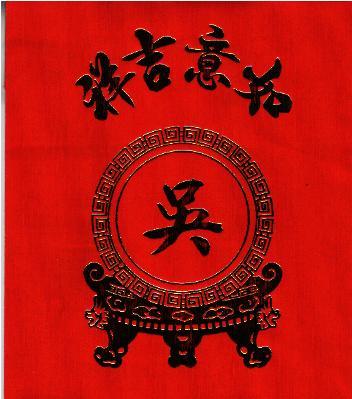Kuo Nien (過年)

A lot of things that we do today to celebrate the passing of the last year ("Kuo Nien") are reminiscent of the old folklore. Days before Chinese New Year's Eve, in the kitchen of a household not too long ago, sausages were being made, vegetables pickled, rice ground, meat cured. Along the streets where the farmers brought their produce to sell, old scholar with good calligraphy wrote festive rhymes on red papers for the decoration on doors and windows. Housewives stuffed their baskets with choice meat, poultry and fish, varieties of vegetables to prepare for the New Year's Eve feast.
It took days to cook the feast. On the last day of the year, at noontime, dishes of chicken and pork, four kinds of fruits, bowls of rice were displayed in front of the shrine of each family's ancestors. Incense sticks were lighted to invite the ancestors to have the first taste of the New Year's Eve feast. Dishes kept coming out of the kitchen, and the feast started at sundown, went on late into the evening. After dinner, the patriarch of the family gave out money in red envelop to the youngsters in the family. For adults and sometimes young adults, gambling was the New Year's Eve after dinner pastime. Dice throwing into a bowl, making "kling", "kling" sounds, cards of a poker game, dealt and studied, and mahjong table set out for four, all made the night went a little faster. The young ones had long lost their battle with fatigue and fell asleep on the sofa. When the clock struck twelve, sounds of fireworks could be heard near and far, marking the entrance of the New Year.
Out with the old, in with the new. On New Year's Day, people put on new clothes and went out to visit friends and families. Greetings of good wishes no longer for surviving the past year but for making a fortune in the coming year exchanged. The celebration lasted till the fifth day of the New Year. That's when the stores opened for business for the first time in the brand new year, and gradually everything went back to normal.
Across the ocean far away from China, the arrival of the lunar new year is foretold by the display of Nien related products in the local supermarket, from candied fruits, sticky rice cakes, sausages, to red envelops and printed festive rhymes, it is one-stop shopping. There won't be fireworks, probably not much gambling at home, but the memories of Kuo-Nien are vivid in my mind.
Gung hay fat choy.